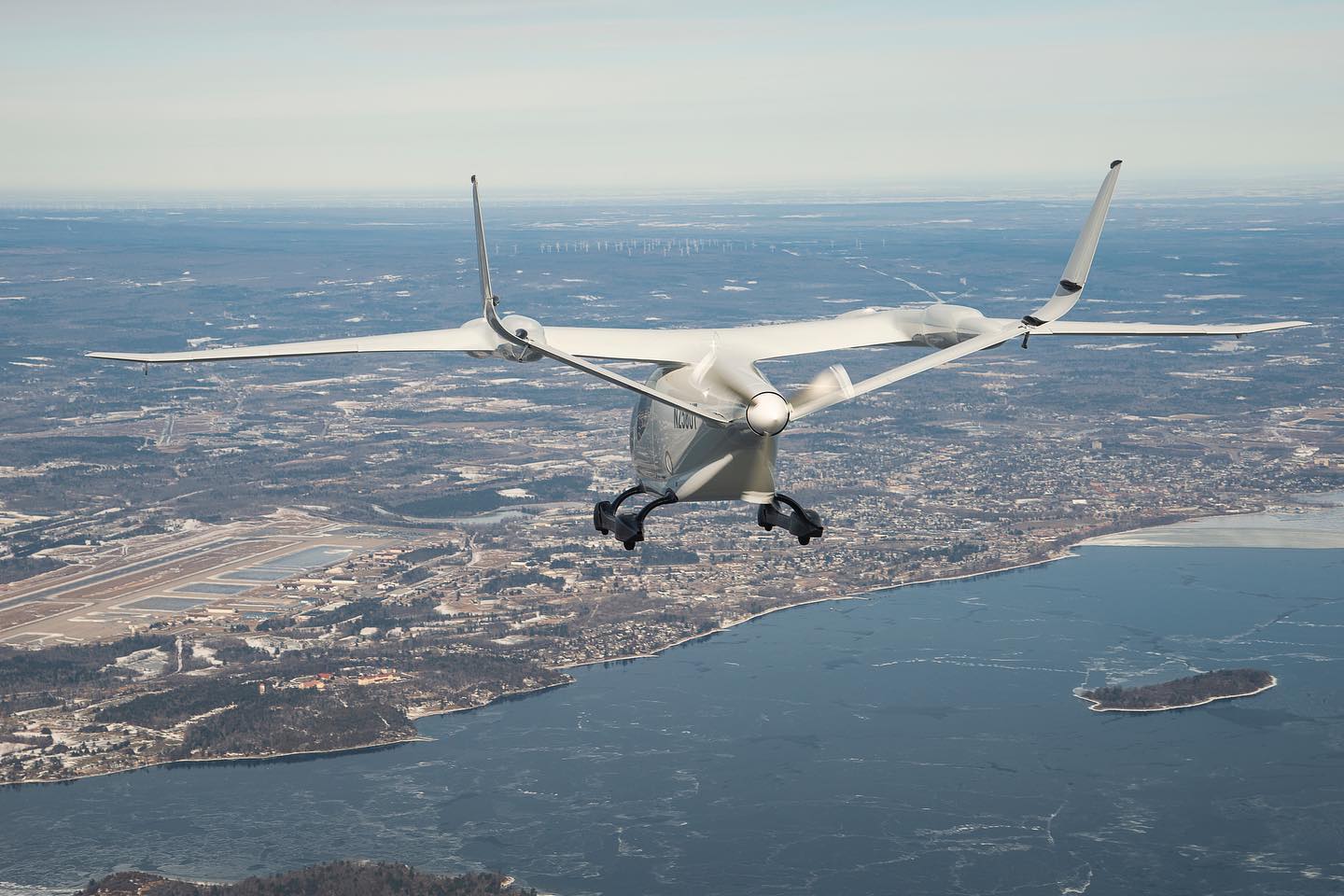This post appeared as part of our Three Points Newsletter on August 29, 2022
A fire involving a stored lithium battery pack at eVTOL developer Beta Technologies highlights some of the ancillary — but very real — risks associated with electric aircraft development.
Beta confirmed that early on the morning of Friday, August 26, the company had a fire in a single container across the parking lot from its research and development headquarters in South Burlington, Vermont. Beta said that within the container was a reassembled battery pack awaiting end of line testing. This pack had not completed testing and as a result was not approved for flight.
“The fire was quickly extinguished and there were no injuries or damage to our current test equipment or aircraft,” a Beta spokesperson told The Air Current by email. “We are grateful to the first responders who arrived on scene, and that the response plans and safety precautions we have in place worked effectively. An investigation into the root cause of the incident is under way and we are happy to share any information that can help move the industry forward.”
Related: Batteries are a looming certification challenge for electric aviation hopefuls
The fire is not Beta’s first: the company experienced a previous fire involving a lithium-ion battery in 2019. That incident also occurred on the ground and was promptly contained. Beta has not had any thermal incidents involving batteries installed in its Alia eVTOL prototype since the aircraft began ground and flight testing in 2020.
Subscribe to TACOther aircraft developers haven’t been so lucky. In some of the highest-profile incidents to date, an early prototype of Eviation’s Alice commuter plane was heavily damaged in a ground battery fire that occurred during powerplant testing in Prescott, Arizona in January 2020; one month later, Lilium’s first Phoenix eVTOL technology demonstrator was destroyed at the company’s headquarters in Germany when a battery fire broke out during ground maintenance activities.
Both incidents were highlighted in a recent Bloomberg News article provocatively titled “Air Taxis Keep Crashing, Bursting Into Flames In Testing Phase”. Eviation told reporter Alan Levin that it “learned a valuable lesson from the event,” while Lilium said its incident led to upgraded safety measures in its battery system.
Boeing, which had two eVTOL prototypes crash in 2019 in accidents unrelated to fires, told Bloomberg it “gained valuable knowledge and experience that will benefit programs across the company.” Both of these accidents were investigated by the National Transportation Safety Board, but the resulting reports were fairly thin.
Most incidents that occur during aircraft development and flight testing are not investigated by independent agencies — meaning their lessons never make it into the public domain — unless an aircraft is destroyed or a person is seriously injured or killed. Even after aircraft are certified, tracking and cataloging safety incidents is a highly fragmented affair, mostly done on a country-by-country or manufacturer-specific basis.
For many advanced air mobility companies, batteries are among their most closely guarded intellectual property, and there is little obvious incentive for them to pass safety advice along to their competitors. Yet, there is a reason why the wider aviation industry has adopted the mantra of not competing on safety.
As AeroDynamic Advisory’s Richard Aboulafia has observed: “Implying that competitors are less safe undermines passenger confidence in the entire system and will be a lose-lose over time.” This is likely to be especially true for electric aviation, which cannot point to a long track record of successful operations to reassure anxious flyers.
Whatever the perceived competitive disadvantages of sharing valuable safety information at this nascent stage, headlines about electric aircraft “bursting into flames” aren’t very good for business, either. Even if the industry is still reluctant to collaborate more broadly on battery designs and standards, there’s a strong argument to be made for sharing safety learnings early and often, as Beta has offered to do in this case.
Write to Elan Head at elan@theaircurrent.com
Subscribe to Continue Reading
Our award-winning aerospace reporting combines the highest standards of journalism with the level of technical detail and rigor expected by a sophisticated industry audience.
- Exclusive reporting and analysis on the strategy and technology of flying
- Full access to our archive of industry intelligence
- We respect your time; everything we publish earns your attention

